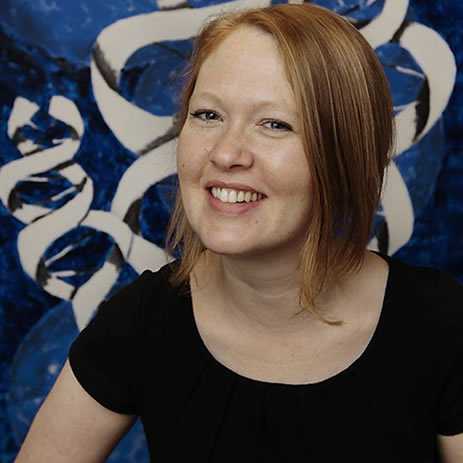All communications require a shared language and fruitful discussions rely on conceptual clarity and common terms. Different definitions and divergent nomenclatures is a challenge for science: across different disciplines, between professions and when engaging with different publics. The audience for science communications is diverse. Research questions and results need to be shared within the field, between fields, with policy makers and publics. To be effective, the language, style and channel should to be adapted to the audiences’ needs, values and expectations.
This is not just in public facing communications. A recent discussion in Neuron is addressing the semantics of “sentience” in scientific communication, starting from an article by Brett J Kagan et al. on how in vitro neurons learn and exhibit sentience when embodied in a simulated game world. The article was published in December 2022 and received a lot of attention: both positive media coverage and a mix of positive and negative reactions from the scientific community. In a response, Fuat Balci et al. express concerns about the key claim in the article: claims that the authors demonstrated that cortical neurons are able to (in vitro) self-organise and display intelligent and sentient behaviour in a simulated game-world. Balci et al. are (among other things) critical of the use of terms and concepts that they claim misrepresent the findings. They also claim that Kagan et al. are overselling the translational and societal relevance of their findings. In essence creating hype around their own research. They raise a discussion about the importance of scientific communication: media tends to relay information from abstracts and statements about the significance of the research, and the scientists themselves amplify these statements in interviews. They claim that overselling results has an impact on how we evaluate scientific credibility and reliability.
Why does this happen? Balci et al. point to a paper by Jevin D. West and Carl T. Bergstrom, from 2021 on misinformation in and about science, suggesting that hype, hyperbole (using exaggeration as a figure of speech or rhetorical device) and publication bias might have to do with demands on different productivity metrics. According to West and Bergstrom, exaggeration in popular scientific writing isn’t just misinforming the public: it also misleads researchers. In turn leading to citation misdirection and citation bias. A related problem is predatory publishing, which has the potential to mislead those of us without the means to detect untrustworthy publishers. And to top it off, echo-chambers and filter bubbles help select and deselect information and amplify the messages they think you want to hear.
The discussion in Neuron has continued with a response by Brett J. Kagan et al., in a letter about scientific communication and the semantics of sentience. They start by stating that the use of language to describe specific phenomena is a contentious aspect of scientific discourse and that whether scientific communication is effective or not depends on the context where the language is used. And that in this case using the term “sentience” has a technical meaning in line with recent literature in theoretical biology and the free energy principle, where biotic self-organisation is defined as either active inference or sentient behaviour.
They make an interesting point that takes us back to the beginning of this post, namely the challenges of multidisciplinary work. Advancing research in cross-disciplinary collaboration is often challenging in the beginning because of difficulties integrating across fields. But if the different nomenclatures and approaches are recognized as an opportunity to improve and innovate, there can be benefits.
Recently, another letter by Karen S. Rommelfanger, Khara M. Ramos and Arleen Salles added a layer of reflection on the conceptual conundrums for neuroscience. In their own field of neuroethics, calls for clear language and concepts in scientific practice and communication is nothing new. They have all argued that conceptual clarity can improve science, enhance our understanding and lead to a more nuanced and productive discussion about the ethical issues. In the letter, the authors raise an important point about science and society. If we really believe that scientific terminology can retain its technically defined meaning when we transfer words to contexts permeated by a variety of cultural assumptions and colloquial uses of those same terms, we run the risk of trivialising the social and ethical impact that the choice of scientific terminology can have. They ask whether it is responsible of scientists to consider peers as their only (relevant) audience, or if conceptual clarity in science might often require public engagement and a multidisciplinary conversation.
One could also suggest that the choice to opt for terms like “sentience” and “intelligence” as a technical characterisation of how cortical neurons function in a simulated in-vitro game-world, could be considered to be questionable also from the point of view of scientific development. If we agree that neuroscience can shed light on sentience and intelligence, we also have to admit that at as of yet, we don’t know exactly how it will illuminate these capacities. And perhaps that means it is too early to bind very specific technical meaning to terms that have both colloquial and cultural meaning, and which neuroscience can illuminate in as yet unknown ways?
You may wonder why an ethics blog writer dares to express views on scientific terminology. The point I am trying to make is that we all use language, but we also produce language. Everyday. Together. In almost everything we do. This means that words like sentience and intelligence belong to us all. We have a shared responsibility for how we use them. The decision to give these common words technical meaning has consequences for how people will understand neuroscience when the words find their way back out of the technical context. But there can also be consequences for science when the words find their way in, as in the case under discussion. Because the boundaries between science and society might not be so clearly distinguishable as one might think.

Written by…
Josepine Fernow, science communications project manager and coordinator at the Centre for Research Ethics & Bioethics, develops communications strategy for European research projects
We care about communication



0 Comments
2 Pingbacks